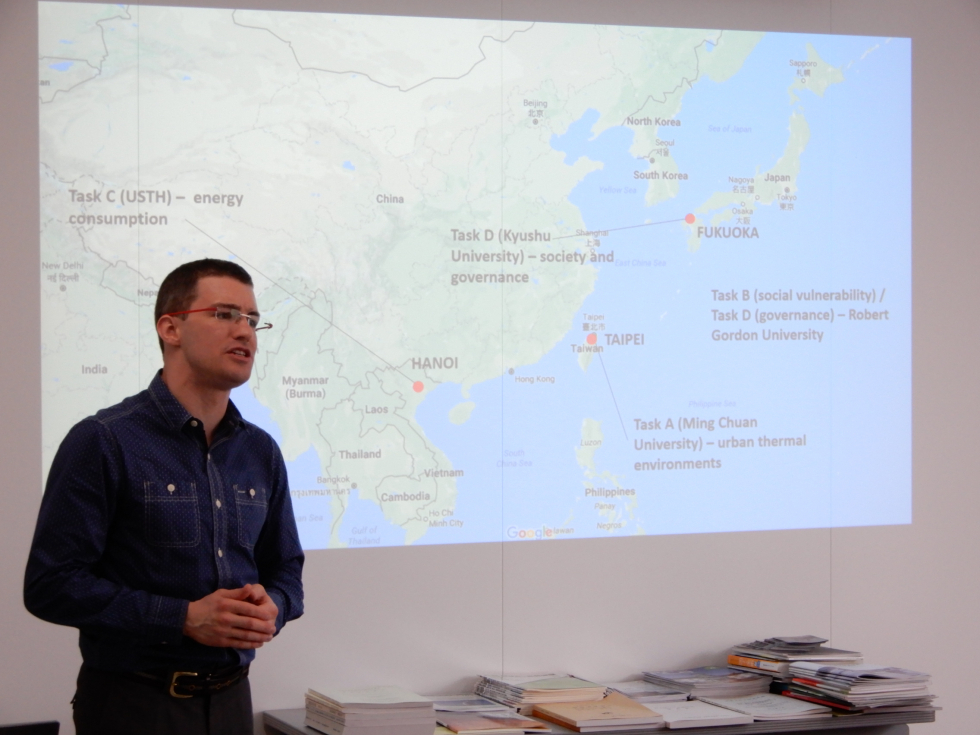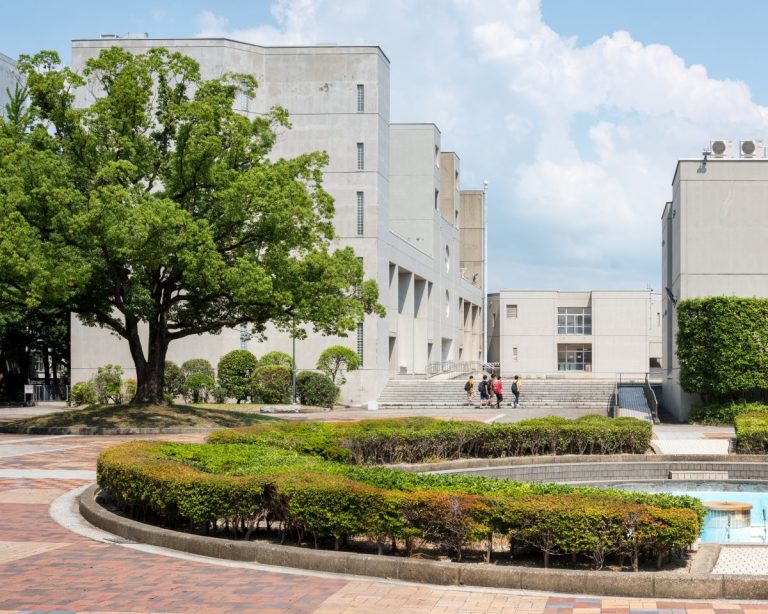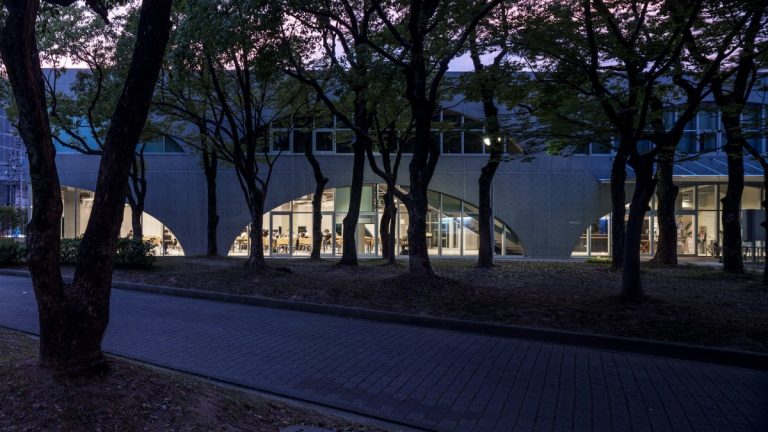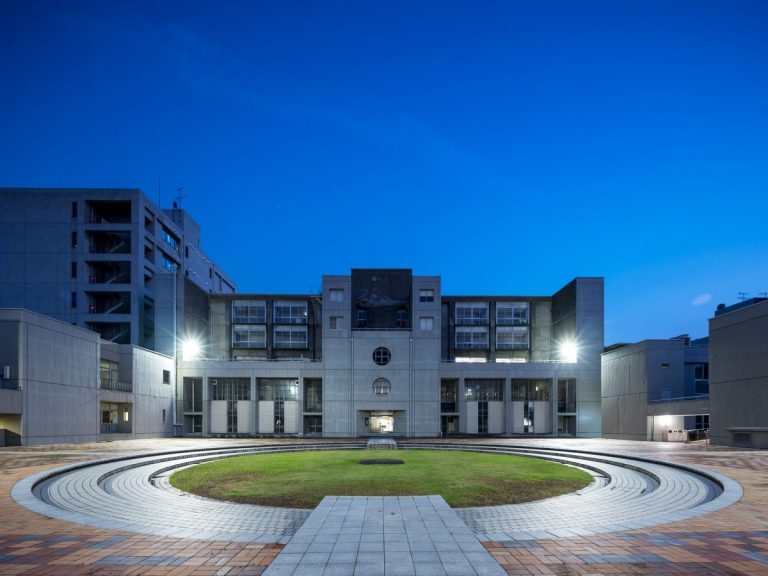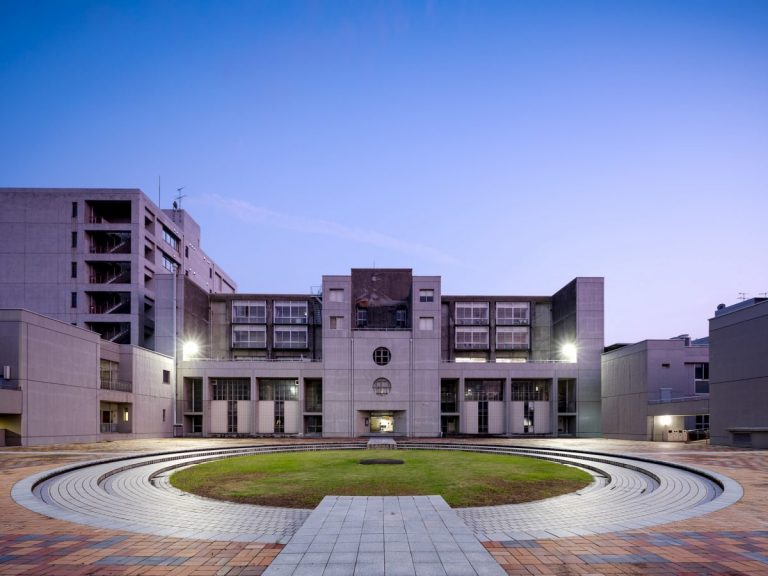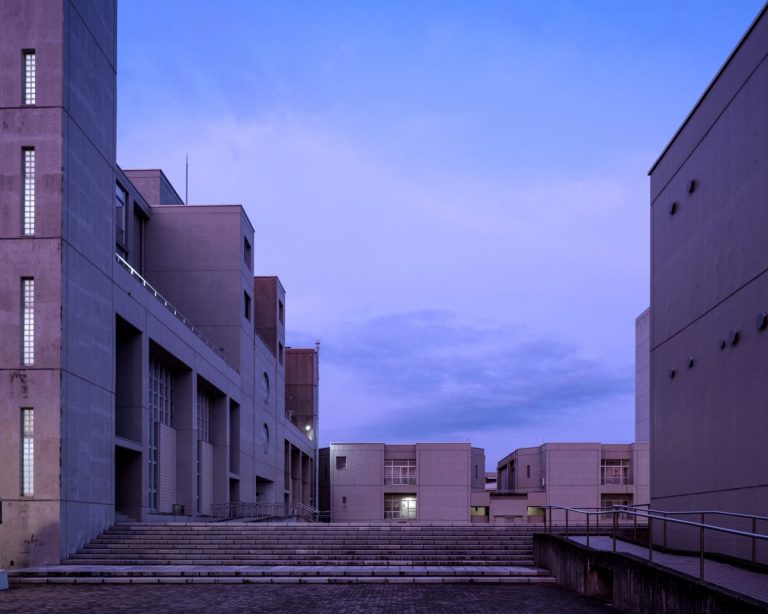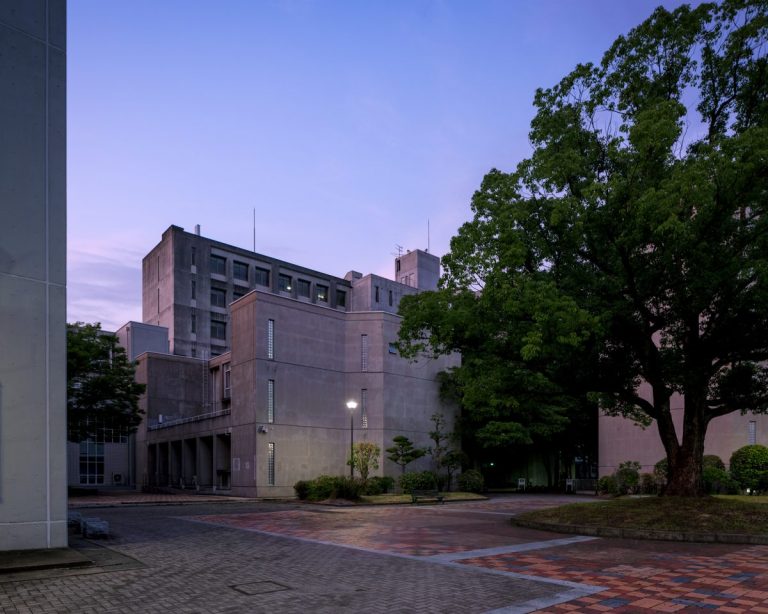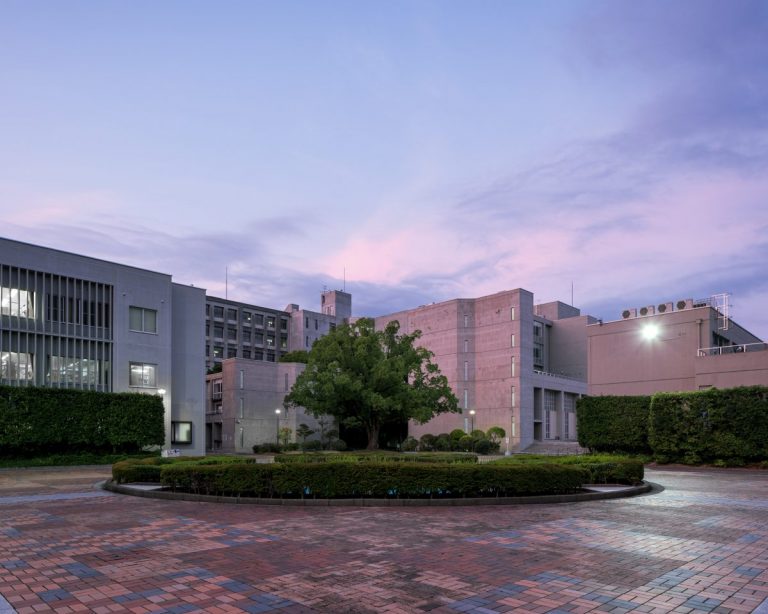Joint Research: Assessment of Energy precarity and Heat-related Health Risks from Climate Change in Asia Cities
 Through the Wellcome Trust Seed Awards in Humanities and Social Sciences in 2017, Dr Leslie MABON from Robert Gordon University (Principal Investigator), Dr SHIH Wang Yu from Ming Chuan University, Dr NGUYEN Hoai Son University of Science and Technology Hanoi and Dr Kayoko KONDO from Kyushu University, collaborated in this project.
Through the Wellcome Trust Seed Awards in Humanities and Social Sciences in 2017, Dr Leslie MABON from Robert Gordon University (Principal Investigator), Dr SHIH Wang Yu from Ming Chuan University, Dr NGUYEN Hoai Son University of Science and Technology Hanoi and Dr Kayoko KONDO from Kyushu University, collaborated in this project.
This project develops and pilots a model for assessing the impact of energy policy on vulnerability to heatwaves within cities, using Hanoi, Fukuoka and Taipei as case studies. It is widely acknowledged that rising temperatures due to climate change pose a major urban health risk, and that increased use of mitigating technologies like air conditioning have a knock-on effect on energy consumption. Not so well understood, however, is how citizens’ capacity to adapt to rising temperatures may be affected by the cost or availability of electricity – particularly as many low-carbon energy technologies designed to mitigate climate change may result in more expensive and/or intermittent electricity supply. Such integrated assessment of exposure to excess heat, socio-economic vulnerability and future energy mixes is important to allow planners and health/social welfare policymakers to identify areas in cities most vulnerable to negative health effects from heatwaves, and to understand potential effects of future energy policies on capacity to adapt to climate change.
For this project, Kyushu University surveyed the citizen attitudes to and understanding of urban heat and energy consumption in Fukuoka City. It is accompanied by policy analysis and interviews undertaken by Robert Gordon University (RGU), that form the basis of lessons in effective urban heat governance from Fukuoka which can be applied to Hanoi and Taipei; and a pilot of social science research which may be applied to Hanoi and Taipei in future project. RGU also look at developing indicators for social vulnerability to heat.
Ming Chuan University undertook remote sensing and spatial analysis to understand how urban development patterns might influence thermal distribution within cities, for both Hanoi and Taipei.
University of Science and Technology Hanoi modelled energy precarity based on heat exposure, income, weather, housing conditions and related socio-economic factors for household consumers in Hanoi and Taipei.
The team came together to share their findings at Kyushu University, Ohashi Campus, Fukuoka, on 26th April 2018. The sharing was fruitful and encouraging. The team is currently looking at continuing the research and expanding the scope of research.
![九州大学イノベーションデザインネクスト[KID NEXT]](https://www.kidnext.design.kyushu-u.ac.jp/wp-content/themes/kidnext/img/logo_header.png)
